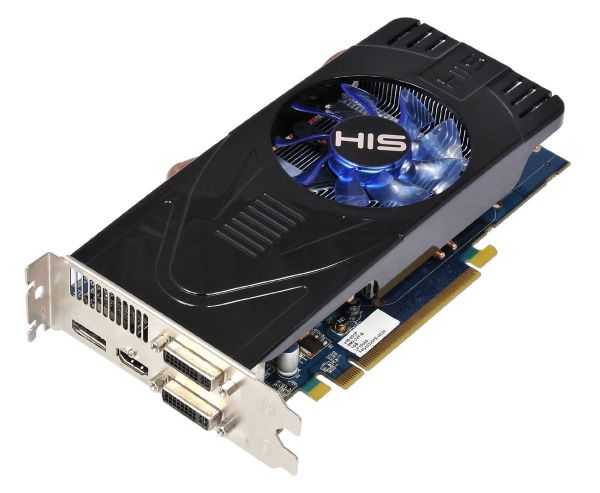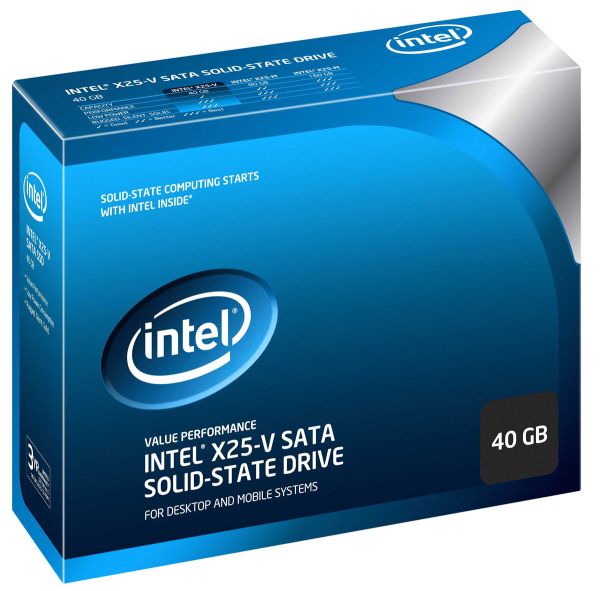Budget System Builder’s Guide February 2011
by Zach Throckmorton on February 14, 2011 12:00 AM ESTGPU Upgrades
Our basic builds use integrated graphics, but if you actually want to play games you'll want something more. In the budget range, there are four excellent offerings, three from AMD (formerly ATI) and one from NVIDIA. For performance data, we'll once more refer to Bench, this time using our GPU 2010 and GPU 2011 suites. The CPUs in GPU Bench are much faster than what we're recommending, but once you start increasing detail levels and resolution you'll usually become GPU limited.
 The XFX HD-567X-ZNF3 Radeon HD 5670 1GB is an excellent video card that does not require an additional 6-pin PCIe power connector. It’ll set you back $95, but currently has a $30 mail in rebate. This card is capable of playing all available titles, though newer games will have to be set to lower resolutions and settings. The reigning budget gamers' choice is the Radeon HD 5770, which can play just about every title at high resolution with at least some settings set to high. The HIS H577FK1GD is $130 (plus a $30 rebate), which is an exceptional value. It also runs very cool, especially at idle.
The XFX HD-567X-ZNF3 Radeon HD 5670 1GB is an excellent video card that does not require an additional 6-pin PCIe power connector. It’ll set you back $95, but currently has a $30 mail in rebate. This card is capable of playing all available titles, though newer games will have to be set to lower resolutions and settings. The reigning budget gamers' choice is the Radeon HD 5770, which can play just about every title at high resolution with at least some settings set to high. The HIS H577FK1GD is $130 (plus a $30 rebate), which is an exceptional value. It also runs very cool, especially at idle.
The NVIDIA GTX 460 outperforms the Radeon HD 5770 by a bit, but unfortunately pulls substantially more juice. MSI’s N460GTX Cyclone 768D5/OC is available for $150 (minus a $20 rebate) and is a compelling product at this price point. Finally, the Radeon HD 5850 represents the top of the budget-conscious builder’s choices. The Diamond 5850PE51G will set you back $185, plus there's a $20 rebate. It's generally faster than the GTX 460, with similar power requirements.
PSU Upgrades
It should be noted that all of the above video cards are compatible with the AMD and Intel platforms, though pairing the 5770, 460GTX, or 5850 with a quad- or hex-core CPU will likely require a beefier power supply than the Earthwatts 380W. The Antec Earthwatts 500W is $50 after rebate (and sometimes less) and is our recommended step up from the Earthwatts 380W. Note that we're linking the old Earthwatts and not the newer EA-500D; you drop from 80 Plus Bronze to just plain 80 Plus, but you also save $25 and it's still a good PSU.
SSD Upgrades
SSDs offer multiple advantages over mechanical hard drives. First and most noticeably, they’re much faster. Everything from load times of both operating systems and applications, to application installations/patches, to level load times in games, to system power consumption is better with an SSD. Unfortunately, they remain expensive and have relatively small capacities. Generally, pairing an SSD with a high capacity storage mechanical disk provides the best of both worlds, though this is not always necessary.
 Multiple manufacturers offer appealing SSDs; the two top controllers of late are from SandForce and Intel, though the Crucial C300, Indilinx, and even Toshiba controllers also have merit. The next year will bring us Intel’s third generation SSDs, and second generation parts from SandForce, Crucial, and Indilinx. For now, the Intel G2 drives are widely considered more reliable than non-Intel offerings—though this might simply be due to the tendency of tinkerers and tweakers to go with non-Intel SSDs!
Multiple manufacturers offer appealing SSDs; the two top controllers of late are from SandForce and Intel, though the Crucial C300, Indilinx, and even Toshiba controllers also have merit. The next year will bring us Intel’s third generation SSDs, and second generation parts from SandForce, Crucial, and Indilinx. For now, the Intel G2 drives are widely considered more reliable than non-Intel offerings—though this might simply be due to the tendency of tinkerers and tweakers to go with non-Intel SSDs!
For the budget conscious, the 40GB Intel SSD is a bit less than $100, while the Intel 80GB SSD checks in around $170. Note the 80GB version has substantially higher write speeds, but writes are not nearly as important as reads for an OS/app drive. OCZ’s Vertex 2 line includes SSDs of numerous capacities, with the 60GB model going for $105 after $15 rebate, and the 120GB drive coming in at just $177 (after $30 rebate). Corsair’s Force line also earns praise from users, and like OCZ, their SSDs are available at many capacities under $200, but are typically slightly more expensive than the OCZ drives. The good news is that even the "slow" SSDs are still substantially faster than even the fastest desktop HDDs (outside of the sequential write metric).
Other Storage Upgrades
While 500GB mechanical drives are cheap at $40 (or less), higher capacity drives are available for not much more. Samsung’s Spinpoint F3 1TB 7200RPM can sometimes be found for $60 or less, and is a forum favorite at AnandTech because of its performance. Another option is Hitachi’s 1TB 7200RPM, currently available for a mere $55. The advent of very high density platters for mechanical hard drives has allowed manufacturers to start marketing "green drives", mechanical hard drives that spin at less than the established mainstream 7200RPM but don’t suffer a crippling performance loss. These green drives run cooler and use less electricity than 7200RPM drives and make for great, cheap mass storage solutions. 1TB green drives usually hover around $60 (and can be found on sale for less), with 2TB green drives often available at $80. Whether you go with Seagate, Samsung, or Western Digital is really a matter of personal preference and price. Finally, if you're looking for Blu-ray support, you can swap out the DVDRW and get a BRD combo drive starting at $60—only $40 more than our stock DVDRW.










58 Comments
View All Comments
jonp - Monday, February 14, 2011 - link
not me, i build systems for others and you can't deliver it without the OS. it's integral to the cost of the system. along with the power cord some have also commented on.kevith - Monday, February 14, 2011 - link
Yep...HangFire - Tuesday, February 15, 2011 - link
It's a hard cost, keep it.Icabus - Monday, February 14, 2011 - link
On the Base System Performance Summary page under the CPU Upgrades section:AMD offers five compelling CPU upgrades to the Athlon II X4 250.
This should be the X2 not the X4.
SmCaudata - Monday, February 14, 2011 - link
When you talk about the i5-760 you don't mention the need for a discrete video card. Doesn't seem like an upgrade option you should mention in this budget segment.JarredWalton - Monday, February 14, 2011 - link
True. I've updated the text just to make this clear. We really aren't recommending anyone go out and buy an i5-760 right now. It's a fine CPU, but for the cost and features, I would much rather wait a month or so and get Sandy Bridge -- which has an IGP as well.geniekid - Monday, February 14, 2011 - link
In general, I think AT is second to none as far as tech websites go. But, for system building, I think I still have to give the nod to Tom's Hardware and it's System Builder Marathons because they actually assemble their machines and bench them. Don't get me wrong. AT's bench is an invaluable resource, but if I'm dropping that much money to build a new machine based on the recommendations of an online article, I feel a lot more confident if the article writers actually built the thing.Gigantopithecus - Monday, February 14, 2011 - link
Hi geniekid - Zach here, thank you for your feedback. I agree that giving actual numbers from actual benchmarks, and probably also pictures of the finished systems as well, would be more effective than simply assuring you that I've built all of these systems for friends and know what they can do, and that they can do it well. ;) I'll keep that in mind if I'm asked to write more guides in the future.trogthefirst - Tuesday, February 15, 2011 - link
Right on!Vincent - Monday, February 14, 2011 - link
I was surprised to see the article recommend OCZ Vertex 2 SSDs in light of the recent controversy over the switch to slower 25nm NAND flash. Basically they switched the type of chips they used and now the drives are slower. This thread has more detailshttp://forums.anandtech.com/showthread.php?t=21421...
Clearly, the new drives' slower speeds will still blow away a mechanical drive, but this move by OCZ and their response to customer complaints hurts their reputation.
I know that Anand has been very complimentary toward OCZ when at the same time he has had very strong pro-consumer words about Intel's handling of their chipset issues. It would be nice to see Anand's take on the OCZ issue and to see him encourage OCZ to respond better to consumers.